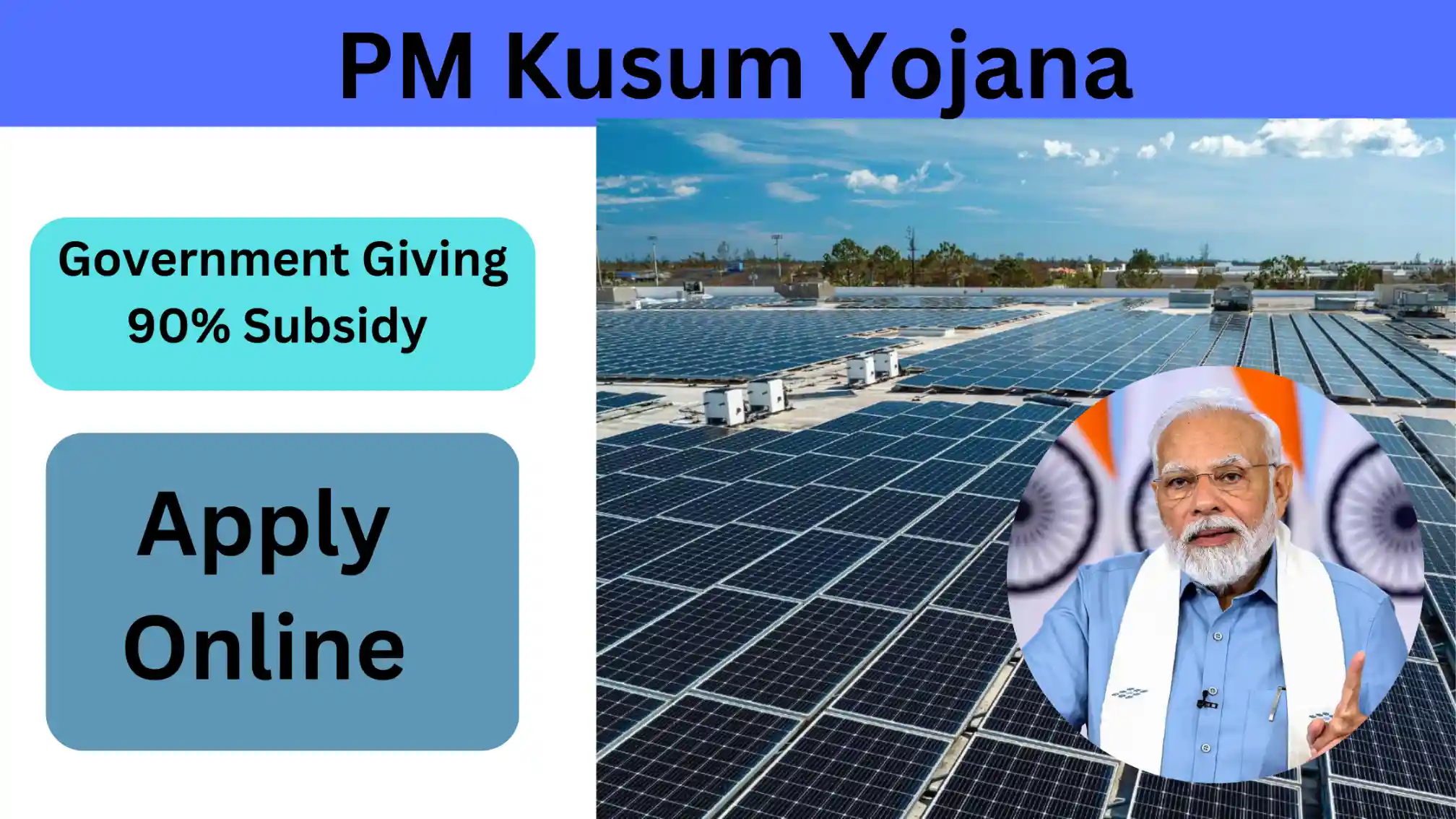The PM Kusum Solar Subsidy Yojana is introduced as a government initiative to help farmers transition to solar-powered solutions for irrigation and power needs.
What is PM Kusum Yojana?
The Pradhan Mantri Kusum (PM-KUSUM) scheme was launched by the Central Government of India in 2019 to encourage farmers to adopt solar energy.
The objective is to reduce the dependency on fossil fuels, lower electricity costs, and provide farmers with an additional source of income by selling surplus solar power.
This scheme aims to promote decentralized solar power production and enhance rural energy security.
Benefits of PM Kusum Yojana for Farmers
Cost Savings: Reduces electricity and diesel costs for farmers, making irrigation more affordable.
Additional Income: Farmers can sell surplus solar power to the grid and earn extra revenue.
Energy Independence: Reduces dependency on expensive and unreliable grid electricity.
Environmental Benefits: Helps in reducing carbon footprint by promoting clean energy.
Improved Agricultural Productivity: Reliable electricity ensures continuous irrigation, leading to better crop yields.
Subsidy and Financial Assistance
The government provides a large subsidy to encourage participation:
60% subsidy is provided by the central and state governments.
30% of the cost can be covered through bank loans.
Only 10% of the total cost needs to be borne by the farmer.
Farmers can avail loans from nationalized banks and financial institutions to cover their share of the cost.
The funding is supported by both state and central government budgets.
Key Features of PM Kusum Yojana
Installation of 10,000 MW of decentralized solar power plants on barren or unused farmland. Farmers can generate solar power and sell it to DISCOMs (Distribution Companies) to earn additional income.
Provision of standalone solar pumps to farmers who lack access to the electricity grid, enabling them to irrigate their fields without diesel or grid electricity.
Solarization of existing grid-connected agricultural pumps, allowing farmers to power their pumps using solar energy and supply excess electricity to the grid.
Eligibility criteria: Small and marginal farmers, cooperatives, and farmer- producer organizations (FPOs) are eligible to apply.
Future Prospects and Government Initiatives
The government plans to expand the PM-KUSUM scheme to cover more farmers and promote large-scale solar energy adoption.
Future initiatives include:
Integration with smart grids to improve power distribution.
Advanced solar panel technologies to increase efficiency.
Better financing options for small-scale farmers.
The scheme aligns with India’s goal of achieving 500 GW of renewable energy by 2030, contributing to a sustainable and green economy.
How to Apply for PM Kusum Yojana?
- Farmers can apply for the subsidy through the official government portals of their respective states.
Visit the official PM-KUSUM website or the state renewable energy department’s portal.
Register with Aadhaar and land details.
Submit required documents (land ownership proof, bank account details, identity proof, etc.).
Await approval and subsidy confirmation.
Install the solar system through an approved vendor.
Assistance is also provided by state DISCOMs and renewable energy agencies to facilitate the process.
Challenges and Limitations
Awareness Issues: Many farmers, especially in rural areas, lack awareness about the scheme and how to apply it.
Initial Investment Concerns: Despite subsidies, the initial cost of installation can still be high for some farmers.
Implementation Challenges: In remote areas, the availability of vendors, technical support, and maintenance services remains a problem.
Land Usage Issues: Not all farmers have spare land to set up solar panels, making it challenging for them to participate in Component A.
Conclusion
PM Kusum Yojana is a game-changer for Indian farmers, helping them reduce costs, earn additional income, and contribute to environmental sustainability.
It is a step towards energy security and a cleaner, greener future for Indian agriculture.
Farmers should take advantage of the scheme to benefit from solar power and government subsidies.
Encouragement to spread awareness and ensure maximum participation for the betterment of the farming community and the environment.

